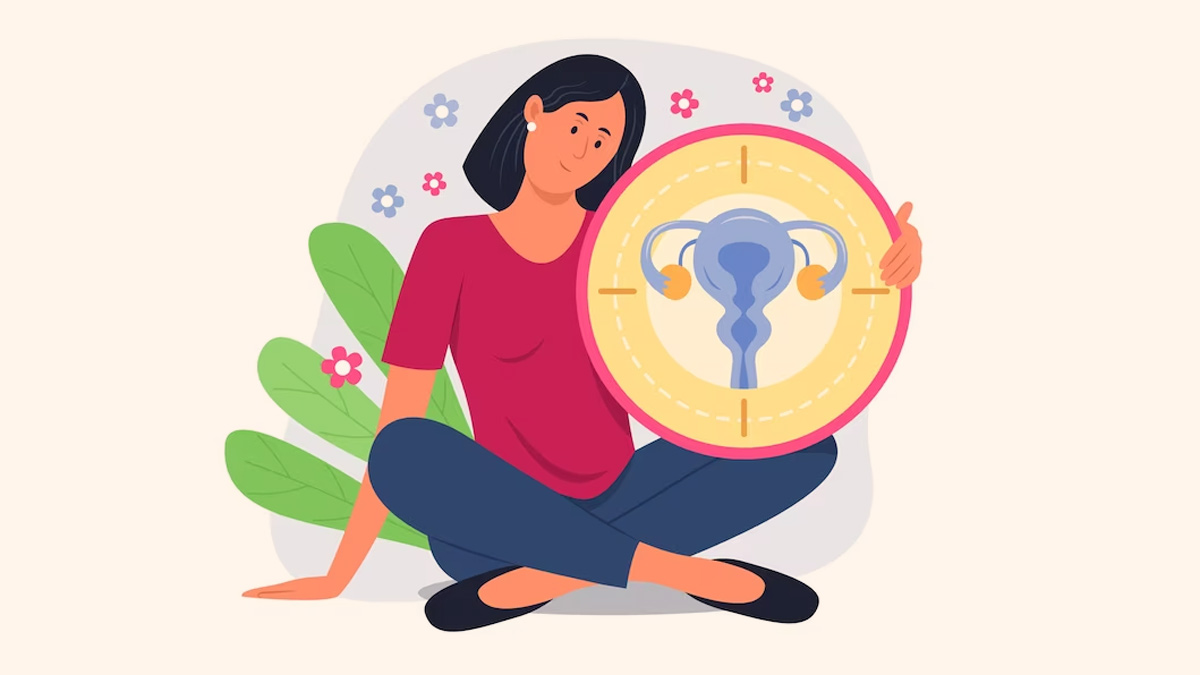Introduction to Menstrual Health
Menstrual health is often a topic shrouded in whispers and discomfort. Yet, it plays a vital role in every woman’s well-being. Understanding periods goes beyond just tracking cycles; it’s about embracing the full spectrum of women’s health.
The menstrual cycle is a natural process that can tell us so much about our bodies. From hormonal shifts to emotional ups and downs, each phase has its unique characteristics and challenges. Ignoring these aspects can lead to missed opportunities for better health.
As we dive deeper into this essential topic, we’ll unravel common disorders that many women face but rarely discuss. We’ll explore practical ways to enhance menstrual health through lifestyle changes and self-care practices.
Moreover, menstruation isn’t just about biology—it’s intricately linked to overall wellness. Acknowledging this connection allows women to take charge of their lives in powerful ways. Yet stigma still lingers around periods, making open conversations difficult.
Join us as we break down barriers and provide resources designed for empowerment on your journey toward optimal menstrual health.
The Menstrual Cycle and Its Phases
The menstrual cycle is a complex process, comprising several phases that impact women’s health and lifestyle. It typically lasts around 28 days but can vary from person to person.
During the follicular phase, which begins on the first day of menstruation, hormones start to rise. This phase prepares the ovaries for ovulation while thickening the uterine lining.
Ovulation occurs mid-cycle when an egg is released from the ovary. This moment marks peak fertility and often brings about a surge in energy levels.
In the luteal phase, hormone levels fluctuate as your body prepares for either pregnancy or menstruation. If fertilization doesn’t occur, estrogen and progesterone drop, leading to premenstrual symptoms before your period starts again.
Understanding these phases helps women manage their health better. Knowledge empowers you to anticipate changes in mood and physical well-being throughout each cycle.
Common Menstrual Disorders
Menstrual disorders affect many women, often in ways that disrupt daily life. Conditions such as dysmenorrhea can lead to severe cramps and pain during periods. This discomfort may make it hard to focus on work or social activities.
Another common issue is premenstrual syndrome (PMS). Symptoms can vary widely, from mood swings and irritability to fatigue and bloating. These changes can be challenging for both the woman experiencing them and those around her.
Endometriosis is another serious condition where tissue similar to the uterus lining grows outside of it. This disorder often causes chronic pain and fertility issues, adding more layers of complexity to menstrual health.
Polycystic ovary syndrome (PCOS) also impacts many women. Irregular periods alongside weight gain and hormonal imbalances characterize this condition. Awareness of these disorders is essential for women’s health management, encouraging proactive approaches toward treatment options available today.
Ways to Improve Menstrual Health
Maintaining good menstrual health is essential for every woman. A balanced diet rich in vitamins and minerals can make a noticeable difference. Focus on leafy greens, whole grains, and healthy fats to support your body.
Regular exercise also plays a vital role. Engaging in activities like yoga or brisk walking can alleviate cramps and enhance mood. It’s all about finding what feels right for you.
Staying hydrated is another simple yet effective step. Drinking enough water helps reduce bloating and fatigue during your cycle.
Consider tracking your periods using an app or journal. This awareness allows you to recognize patterns and symptoms that may need attention.
Don’t hesitate to seek professional advice if something feels off. Open communication with healthcare providers ensures that any concerns are addressed promptly, leading to better overall wellness throughout the month.
The Connection Between Menstruation and Overall Health
Menstruation is often seen as a monthly inconvenience, but it plays a crucial role in women’s overall health. The menstrual cycle reflects hormonal balance and reproductive health, serving as an indicator of how well the body functions.
Irregular periods can signal underlying issues such as polycystic ovary syndrome (PCOS) or thyroid disorders. These conditions may also affect energy levels, mood swings, and even skin health.
Additionally, menstruation influences bone density and cardiovascular risk. Hormones like estrogen help protect bones; irregular cycles might lead to long-term consequences for bone strength.
Moreover, understanding your cycle promotes better lifestyle choices. Women who track their menstrual patterns may identify patterns related to nutrition and exercise that align with different phases of their cycle. This awareness fosters self-care practices tailored to individual needs throughout the month.
Stigma and Taboos Surrounding Periods
Menstruation has long been shrouded in stigma and taboos. Many cultures view periods as dirty or shameful, leading to unnecessary silence and embarrassment.
This societal discomfort can have real consequences for women’s health. It discourages open conversations about menstrual health issues, leaving many women uninformed or misinformed.
The lack of education contributes to myths surrounding menstruation, creating fear rather than fostering understanding. For instance, some believe that physical activity during your period is harmful when it can actually be beneficial.
Additionally, products related to menstruation are often hidden away in stores. This reinforces the notion that discussing periods is inappropriate. Women should feel empowered rather than ashamed.
Breaking these taboos requires courage from everyone—educators, parents, friends—and a commitment to normalize discussions around menstrual health and wellness. It’s time for society to rethink its narrative on this natural part of life.
Resources for Women to Take Control of Their Menstrual Health
Empowering oneself is the first step towards better menstrual health. There are numerous resources available for women to navigate their periods and overall well-being effectively.
Consider tracking your menstrual cycle through apps like Clue or Flo. These tools can help you monitor symptoms and predict cycles, offering insights into your unique patterns.
Education is another powerful tool. Websites such as Planned Parenthood provide extensive information on menstruation, reproductive health, and common disorders. Engaging with these resources helps demystify aspects of periods that may cause anxiety or confusion.
Support groups can also be beneficial. Online forums like Reddit’s r/periods allow women to share experiences and advice in a safe space. Connecting with others who understand what you’re going through fosters community support.
Additionally, books focused on women’s health can offer deeper insights into managing periods holistically. Titles by authors like Dr. Lara Briden emphasize natural approaches to hormonal balance that resonate with many women’s experiences.
Don’t hesitate to consult healthcare professionals when needed. A gynecologist can provide personalized guidance tailored to individual needs regarding menstrual disorders or general reproductive health concerns.
Taking charge of your menstrual health involves embracing knowledge and seeking help when necessary. With the right resources at hand, every woman can navigate her journey confidently.














